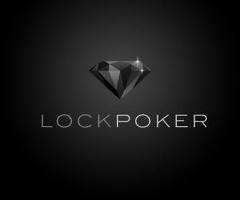Lock Poker CEO’s G911 Interview is Nothing but Spin
 While the poker world’s attention was consumed by the secret UB recordings that were released last weekend, Lock Poker CEO Jennifer Larson gave an interview to Gambling911’s editor, Chris Costigan. Although Costigan billed it as a sit-down interview, the use of scare quotes in several of Larson’s answers suggests that she responded in writing to a list of questions provided to her in advance by Costigan.
While the poker world’s attention was consumed by the secret UB recordings that were released last weekend, Lock Poker CEO Jennifer Larson gave an interview to Gambling911’s editor, Chris Costigan. Although Costigan billed it as a sit-down interview, the use of scare quotes in several of Larson’s answers suggests that she responded in writing to a list of questions provided to her in advance by Costigan.
G911 is not exactly an impartial observer when it comes to Lock. The site is a major affiliate of Lock. Its employees regularly attend Lock company retreats on the poker site’s dime. The fact that Larson would only speak to G911 and not to any other poker media site speaks volumes about Lock’s willingness to answer tough questions from the community.
Costigan did not ask any tough questions.
Lock’s massive delays in processing cashout requests have raised a number of concerns among players, chief among them that Lock is broke. The players have repeatedly requested that the company submit to a public, independent audit of its books (a task that Lock’s licensor, Curacao, theoretically conducts privately) so that the players can be reassured that Lock has all player funds on hand. Costigan asked why this hasn’t happened.
Larson said that such an audit is impossible because auditors “are unable to state that if pressured by the US Government they will not disclose the details of the Lock accounts they audit … and admit that the threat of being ‘black listed’ by the DOJ … cannot justify their taking Lock on as a client. No other online gaming site has or can publicly open its ‘books’.”
There are plenty of audit firms in the world that don’t do business in the U.S. and over whom the DOJ holds absolutely no power. Regardless, the DOJ isn’t in the habit of blacklisting anybody, especially companies that aren’t breaking any laws. It’s not illegal to audit a company just because that company may be violating the law in the course of its operations.
Frankly, if the DOJ wants to subpoena a company to learn about Lock’s bank accounts, it can start with the payment processors that Lock uses and can go from there.
It’s easy for Lock to claim that no other gaming company has publicly opened its books. That claim conveniently ignores two critical facts: (1) those other companies haven’t had the payment processing problems that Lock has had; and (2) those companies are licensed in jurisdictions that transparently require player funds to be segregated from operational funds, ensuring that the funds will always be available for cashout even if the company goes bankrupt.
Regarding the uproar over P2P transfers that started the latest Lock crisis, Larson repeated Lock’s claim that people were abusing P2P transfers “to move and withdraw funds without any play taking place” and the policy was changed “to put an end to money laundering”. Larson also claimed that the “money laundering ring caused a massive increase in withdrawals causing legitimate player’s cashouts to be delayed.”
In the abstract, yes, P2P transfers can be used to launder money. What criminal, however, would use Lock Poker to launder money when cashouts take weeks or months to receive and are capped at $10,000?
The reality of what was happening was that players, frustrated by lengthy delays in receiving Lock cashouts, were selling their funds at a discount on a secondary market. The buyers were people who had access to faster Lock cashout methods (through affiliate accounts or otherwise) that allowed them to jump the queue of pending cashouts.
In the aggregate, this arbitrage should have sped up Lock’s cashout process, not slow it down. It reduced the number of pending cashouts – people who sell on a secondary market are people who would otherwise cash out if the secondary market didn’t exist – by reducing the number of pending cashouts and saving Lock some transaction fees. The total of the amount that players want to cash out, in the aggregate, is unchanged. It simply is happening in fewer cashout transactions, which should be a win for players and Lock alike.
Part 1 of the interview concluded with some discussion of the Revolution Network that was completely unrelated and irrelevant to any of the concerns that Lock’s players have raised over the last few weeks and months. We’ll dig into Part 2 of the interview tomorrow.




















COMMENTS